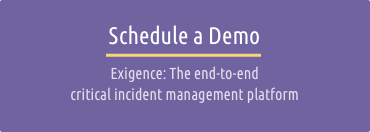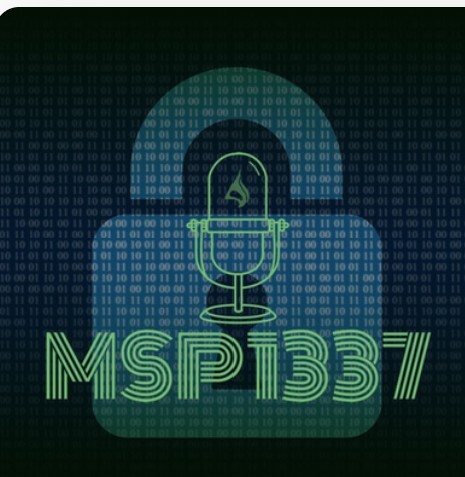In this day and age, rare is the organization (if there is one at all) that has never been hit by a cyberattack. Few have escaped the nightmare of systems going down, customers losing access to their accounts, or payments getting stuck mid-transfer.
Just as common is all the stress on the path to recovery and the absence of a structured, streamlined, and repeatable process for effectively preparing for the worst.
In comes DORA
Precisely for this reason, in early 2025, the European Commission, the EU’s Supervisory Authorities (ESAs, i.e., EBA, ESMA, and EIOPA), and national financial regulators, came together to put DORA into effect – the Digital Operational Resilience Act (formerly, Regulation (EU) 2022/2554).
DORA was designed to ensure that financial entities and their service providers across Europe can withstand, respond to, and recover from ICT (information and communication technology) related disruptions—quickly and effectively.
| "DORA brings harmonisation to rules relating to operational resilience for the financial sector, applicable to 20 different types of financial entities and ICT third-party service providers." (EIOPA) | |
|
Organizations impacted by DORA
|
|
The 5 requirements
DORA mandates that financial organizations step up their game when it comes to handling digital risk by ensuring that they meet the following five core requirements:
- Risk management framework: Put a solid system in place to continuously identify, assess, and manage ICT-related risks.
- Incident reporting: Be ready to detect and report ICT-related incidents fast, classify them correctly and notify the right authorities within required timeframes.
- Digital operational resilience testing: Test systems regularly and rigorously, from infrastructure to processes, to spot weak points and confirm ability to bounce back from disruption.
- Information sharing: Work together with other institutions securely and share threat intelligence and cyber risk insights to help strengthen the sector’s collective defense.
- Third-party risk management: Extend resilience to partners by applying strict controls to ensure that third-party ICT providers also meet DORA standards.
But wait! there’s a 6th requirement that must come first
For financial institutions and their service providers to be confident that they meet DORA’s five core requirements, they first need to meet a sixth, unwritten requirement—preparedness. It’s the foundation for everything DORA demands.
In this context, being prepared means always knowing in real time and on demand:
- What are everyone’s roles and responsibilities
- What are the right investigative procedures
- Which external stakeholders need to be contacted, e.g., insurance carrier, breach attorney, regulatory authorities, law enforcement
- Which data needs to be collected
- Which reports need to be compiled and who needs to get them
- What are the legal protocols
- And more
This is where the incident response (IR) plan comes into play. And this is where Exigence can help.
Fueling compliance with platform-based incident response
Exigence brings platform-based incident response planning that empowers security and IT teams to be confident that they can meet DORA requirements by always being ready to respond.
Automated IR planning
The key is the platform’s automated, actionable, and guided IR plans, built-in tabletop exercises, and out-of-band availability.
Platform-based IR planning with Exigence means eliminating reliance on static plan documents that are rarely up to date and which are often too long to navigate effectively during critical moments.
Pre-defined forms & more
The platform comes with pre-defined forms, checklists, and timers which make creating IR plans intuitive, fast, and easy.
Guided tabletop exercises
In addition, it offers guided tabletop drills for testing plans, training teams, and engaging all incident stakeholders to train proactively and ensure every stakeholder knows what to do next.
Out-of-band availability
And, with out-of-band availability, responders always have access to the plan, so they can manage incidents even when the network is compromised and primary systems are down.
It doesn’t stop there
As for the DORA requirements for mandatory incident reporting, regular digital resilience testing, and Information sharing, maintaining records, and documentation, Exigence has you covered there as well.
Mandatory incident reporting
Serving as a single source of truth that consolidates all incident data and stakeholder updates, Exigence makes it easy to access any information needed for incident updates and post-incident reports—and can even generate them automatically.
Information sharing, maintaining records, and documentation
The Exigence platform includes an integrated war room that aggregates and consolidates all incident response actions taken and stakeholder updates through one unified interface.
From this single source of truth, users can generate a root cause analysis and reports with one click.
And with GenAI-powered incident summaries, meeting regulators’ stringent timelines is not only doable, it’s easier and faster than it has ever been.
In conclusion
In today’s high-stakes regulatory landscape, being compliant isn’t enough—you need to be ready. Exigence helps financial institutions move from reactive to resilient with platform-based readiness, built-in agility, and IR excellence, so you’re always one step ahead of disruption, and fully aligned with DORA.
For more information on how Exigence can support your DORA compliance efforts, we invite you to reach out to us at info@exigence.io.








.jpg)

